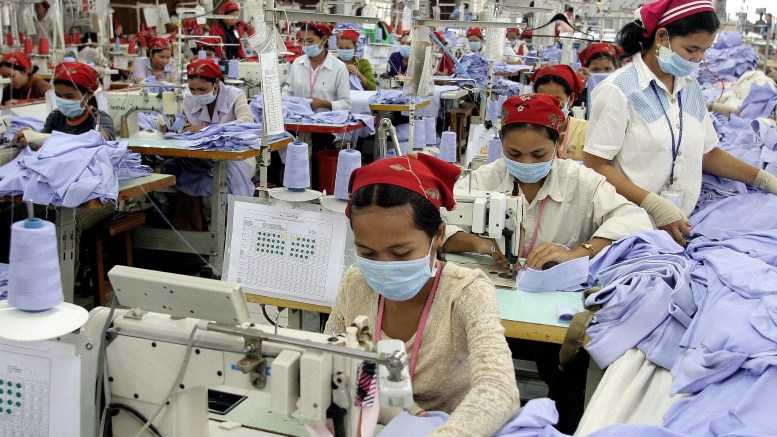The number of workers in East Java Province in 2017 was 20,099,220. The number of male workers was 11,947,824, while that of female workers was 8,151,396 (1). This number was 40.56% of the total workforce in Indonesia. Female workers possess different abilities and physiology from male workers. In fact, they are susceptible to some hazards such as noise, heat, dust, the vibration that exists in the workplace environment. Each country has its protection for female workers against hazards in the working environment. In Indonesia, the law provides some special protections for female workers, such as permission to take a leave during their first and second days of menstruation, permission to rest before and after giving birth, restriction from working at night, and working over 40 hours a week. However, in reality, many female workers still have to work over 40 hours per week, and it is difficult to get their rights to take maternity leave during pregnancy.
Women workers in the industrial area of Sidoarjo, especially those who work in research centers of beverage, shoe, food factories, have work shifts. Generally, male workers work 1-3-2 or morning-night-evening shifts. Meanwhile, some workers who don’t have shift work are generally those who work in the office. Female workers who have morning, afternoon, and evening work shifts are certainly more at risk when compared to the workers who work in the office. Working hours at night can cause stress and hormonal disruption to the female workforce.
36.7% of female workers who experienced reproductive health problems experienced menstrual disorders, 39.4%, and 20.2% have pregnancy problems. The number of workers who are categorized as having work shifts and experiencing reproductive health problems is 71.4%, and people who work at night are at three times greater risk of experiencing pregnancy problems compared to those who work in the office.
Shift work on female workers is interesting and needs to be a significant focus. Female workers who work more in the evening and night shifts will tend to experience disorders such as premature babies and fetal growth imbalances. Other supporting research explained that female workers who work night shifts would be at risk of to have premature baby and if they often work in the afternoon shift will be at risk of giving birth to LBW babies.
Evening or night work shifts and irregular work shifts for female workers will cause an imbalance in the system of female workers. Shift work will have an effect on the Circardian Rhythm, which can have an impact on the ovulation cycle and the occurrence of irregular menstruation and also have an impact on the ongoing pregnancy process. Psychologically, night shifts can also cause work stress. Work stress can cause menstrual disorders and libido disorders. Shift work can also cause a shift work disorder. Shift work disorder can cause changes in Circadian Rhythm, less effectiveness, an increase in work accidents, and human errors in the workplace.
The various information above strengthens us to protect female workers. Women workers, especially those who are pregnant or planning to have baby, need to be provided with the morning shift without the afternoon or evening shift during pregnancy. Female workers must also be more active in providing information to company management as well. Thus, it is essential to do because the early phase of pregnancy is crucial in the pregnancy process. Hopefully, female workers, especially those who are pregnant, can get protection, get rights according to the law.
Author: Tri Martiana and Firman Suryadi rahman Link: https://medic.upm.edu.my/upload/dokumen/2019121207345209_MJMHS_0354.pdf
(The Influence of Work Factors on Reproduction Health of Health of Female Workers in Sidoarjo Industrial Area, Indonesia)





